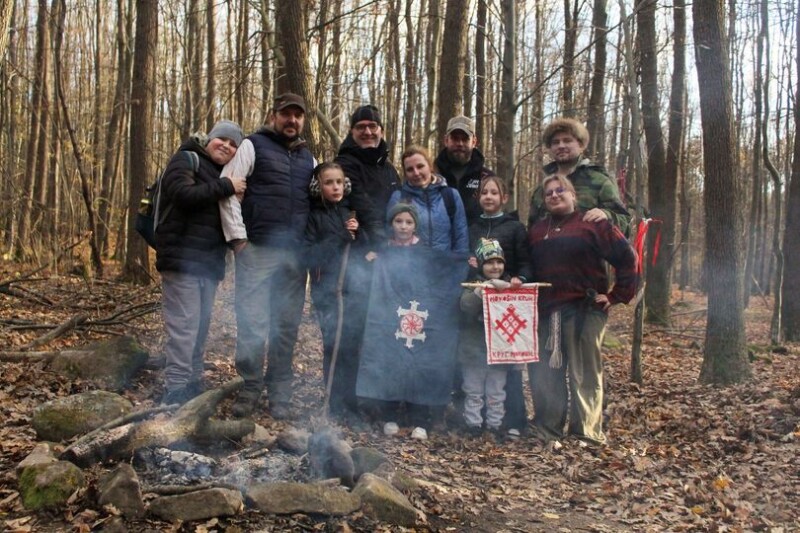During the time of Džady, we honored our ancestors by lighting candles on their decorated graves and inviting them to join our ceremonial meal. Thanks to Mokoš’s circle, we recently also performed a commemorative ritual at Raslavkaň. There weren’t many of us, but the ritual was conducted. But why, really?
EVENTS : https://www.weleslaw.com/en/article/souls-day-ceremony-at-raslakamen_g9D75tXvV7-JDAWoSsg_Bw_x/
The time of darkness is upon us. Our ancestors called this period the “stridžný time,” lasting from Džady, or the Memorial Days, until Kračún, or Christmas. It was believed that the boundary between the world of the living (Jav) and the underworld (Nav) was thin, allowing dead ancestors, as well as various other beings—witches and sorcerers—easier access to the world of the living. Therefore, our ancestors performed various rituals. One of these, and actually the first one, was a ritual of connection with the ancestors, expressing gratitude for their favor, seeking help and protection in the coming days, and, in essence, thanking them for our very existence. During this ritual, the deities Mokoš and Veles were invoked.
Our ritual was simple. We laid our offerings at Raslavkaň, a sacred altar. After spiritually cleansing the site and the participants, we reflected on what we had experienced over the past period and what awaited us. Before we began the feasting, we invited the ancestors to join us in celebrating by the sacred fire.
Such a ritual as ours was often performed in place of visiting the ancestors' graves when that wasn’t possible. It was also meant to ensure a connection with them. We will discuss other stridžný rituals in the next article.


















